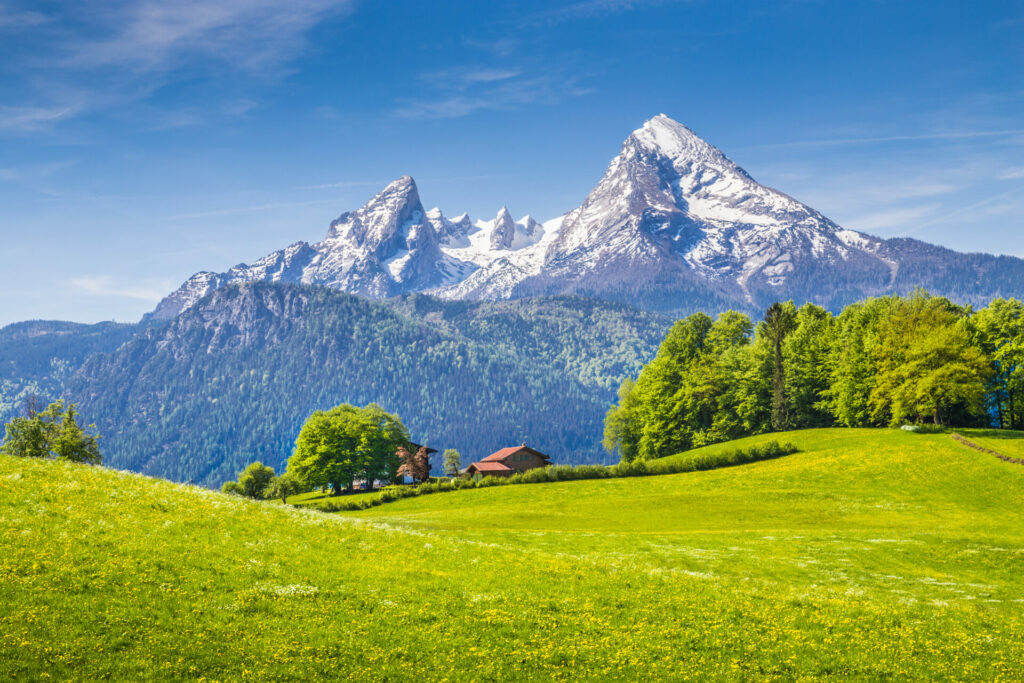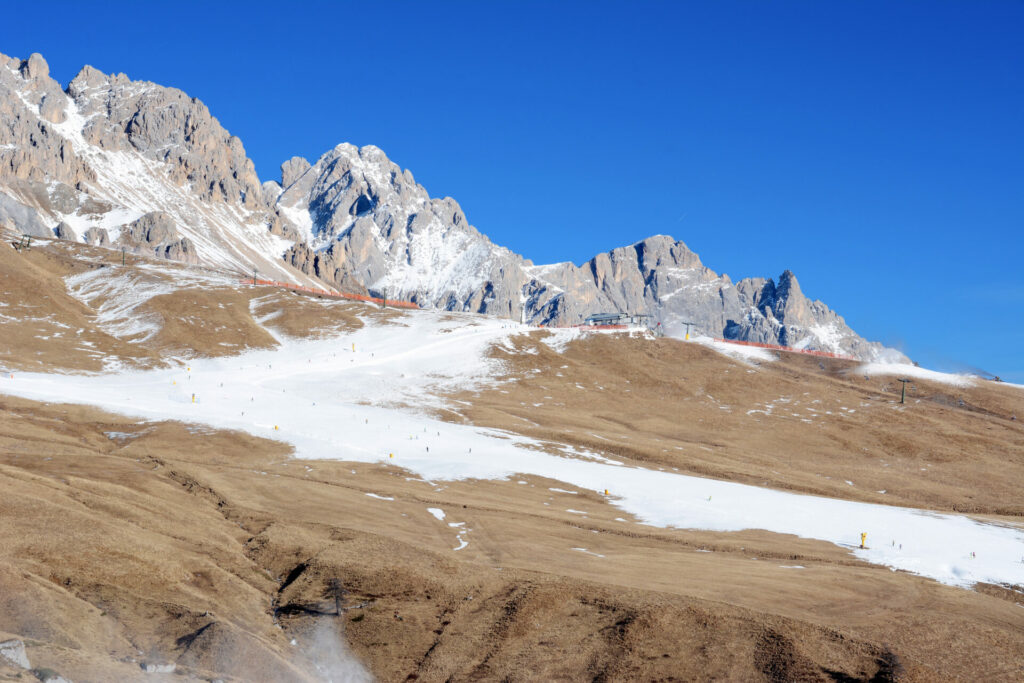All Alpine snow melted over the course of last summer for the first time in recorded history, a United Nations report has revealed.
Scientists are warning that glacier melt across Europe has been ‘off the charts’ during the past few years, as the effects of the climate crisis continues to worsen.
In normal years some alpine snow would remain on the mountains’ ice sheets and glaciers – but by the end of summer 2022 there was none.
The Swiss Alps also lost six per cent of their glacier volume between 2021 and 2022 as heatwaves, lack of snow and gusts of Saharan dust hit the mountain range.

A temperature of zero degrees centigrade was recorded at a record-breaking height of 5,000m – occurring for the first time in almost 70 years.
The State of the Global Climate report stated: ‘From mountain peaks to ocean depths, climate change continued its advance in 2022. Droughts, floods and heatwaves affected communities on every continent and costs many billions of dollars. Antarctic sea ice fell to its lowest extent on record and the melting of some European glaciers was, literally off the charts.’
Ahead of the report’s release, UN Secretary-General António Guterres stressed that human-kind must act rapidly to mitigate against the issues of global warming.

He said: ‘We have the tools, the knowledge, and the solutions. But we must pick up the pace. We need accelerated climate action with deeper, faster emissions cuts to limit global temperature rise to 1.5 degree Celsius.
‘We also need massively scaled-up investments in adaptation and resilience, particularly for the most vulnerable countries and communities who have done the least to cause the crisis.’
The Gradual Disappearance of Alpine Snow
The report, compiled by the World Meteorological Organisation (WMO) for the UN, revealed that the past eight years have been the hottest on record globally, while in Europe records have been shattered in terms of glacier melt.
The Alps are covered in a blanket of snow for the majority of the year, attracting skiers and snowboarders across the world.
But the effects of climate change saw this blanket disappear altogether, as snow melt kickstarted one month earlier than usual in 2022. When Saharan dust blew onto the mountain range last March, this melt sped up even further as the reflection of solar energy was limited.
Blair Trewin of the WMO said: ‘It was quite a dry winter, so the amount of snow that accumulated during the winter was less than usual, and then there was a very consistently hot summer. So you had more rapid melt than usual.’
However, the Alps were by no means an anomaly, with glaciers in North America, South America and parts of the Arctic experiencing substantial glacier loss too, the report added.














